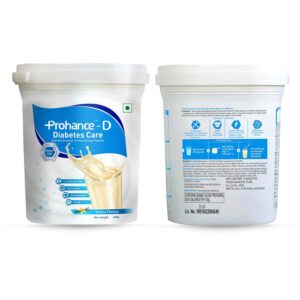NUTRITIONAL SUPPLEMENT + HIGH STRENGTH GLUCOSAMINE
Nutritional Supplement: Drug: Nutritional Supplement
Use: Nutritional supplements are used to provide essential nutrients that may be lacking in a person’s diet. They are commonly used to ensure proper nutrition in individuals with certain medical conditions, dietary restrictions, or those who are unable to consume adequate nutrients through food alone.
Mechanism of Action: Nutritional supplements work by supplying vitamins, minerals, amino acids, fatty acids, and other essential nutrients to the body. These nutrients are necessary for various physiological processes, such as metabolism, energy production, immune function, and overall health maintenance.
Dose: The dose of a nutritional supplement can vary depending on the age, sex, and specific nutrient needs of an individual. It is important to follow the recommended dosage and instructions provided by the manufacturer or healthcare professional. Some supplements may also have different dosages depending on the purpose of use.
Side Effects: The potential side effects of nutritional supplements can vary depending on the specific supplement and the individual’s tolerance. In general, most nutritional supplements are considered safe when taken within the recommended dosage. However, some common side effects may include gastrointestinal discomfort, allergic reactions, and interactions with medications. It is advisable to consult a healthcare professional before starting any nutritional supplement to assess potential risks or interactions.
Note: Nutritional supplements are not intended to replace a balanced diet or to treat specific medical conditions. They should be used as a supplement to support overall nutritional needs. It is important to consult with a healthcare professional before starting any new supplement regimen to ensure it is suitable for individual needs and to avoid potential interactions with other medications or medical conditions.
High Strength Glucosamine: High Strength Glucosamine is a dietary supplement commonly used to treat osteoarthritis and joint pain. It is a natural compound derived from shellfish, primarily shrimp, crab, and lobster shells. Glucosamine plays a crucial role in maintaining the health of joint cartilage and is believed to alleviate the symptoms of osteoarthritis by promoting cartilage repair and reducing inflammation.
The mechanism of action of Glucosamine involves stimulating the production of proteoglycans and glycosaminoglycans, which are essential components of healthy cartilage. By increasing the availability of these substances, Glucosamine aids in the repair and regeneration of damaged cartilage, reducing joint pain, and improving joint function.
The recommended dose of High Strength Glucosamine varies depending on the severity of symptoms and the individual’s weight. Generally, the starting dose is 1500 mg per day, which is usually divided into three separate doses of 500 mg each. It is important to follow the instructions provided by the manufacturer or consult a healthcare professional for the appropriate dosage.
While Glucosamine is generally well-tolerated, some individuals may experience mild side effects such as nausea, heartburn, diarrhea, and constipation. There have been rare reports of allergic reactions, including rash, itching, and swelling. People with shellfish allergies should avoid Glucosamine since it is derived from shellfish.
It is important to note that Glucosamine is not regulated as a medication by the U.S. Food and Drug Administration (FDA) and is categorized as a dietary supplement. Therefore, its efficacy and safety may not be extensively studied or guaranteed. It is always recommended to consult a healthcare professional before starting any new dietary supplement to ensure it is appropriate for individual needs and to avoid potential interactions with other medications.






